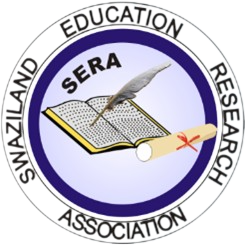
EERJ
Copyright Terms

Copyright & Licensing terms
On the grounds that making research freely accessible to the public promotes a larger, more interconnected flow of information, the Journal offers instant open access to all of its articles. By default, ownership of the author(s)’ copyright in the article stays with them, or with the business that holds their copyright. Authors who submit their work to one of our open access journals consent to have it published under the Creative Commons CC BY licence in the event that it is approved. For readers’ use and sharing, the journal makes the paper available online. The Creative Commons Attribution (CC BY 4.0) licence defines permitted (re) usage.
CC BY 4.0: Allows users to copy, produce extracts, abstracts, and new works from the article, edit and update the piece, and use the material for commercial purposes.
Any copyrighted material (including text, tables, figures, and other copyrighted materials) included in an article must be acknowledged, and any necessary permissions must be obtained before it may be used, reproduced, or modified. The material’s originator must be acknowledged, and the author must state that they gave their consent.
After getting the Author’s written permission, the Journal will be allowed to publish the article. The author(s) and co-authors retain all copyright in the published article (original work). If the publisher decides to pursue legal action, the paper that was previously published in the journal may not be published in any other journal. Prior to publication, the author must remove the manuscript from the journal with written permission if he or she wishes to publish it in any other journal.
Claim of Copyright Violations
Claims of copyright infringement should be sent to the Editor at info@eswera.org with the subject “Copyright Infringement” in the body of the email.
The claim must be supported by written documentation demonstrating that the same version was published, copyrighted, or patent-protected by the harmed party prior to the date on which the relevant Journal article was published. The Journal Board will notify the Journal author to submit an explanation upon receipt of the claim, if it is determined that the claim is valid. The discussion will be open to all parties.
To assess whether any such accusations are true, the Journals Board retains exclusive discretion. The disputed manuscript will be purged from the Journal’s archives and servers after consideration, if the allegation is determined to be valid. The article won’t appear in any further print editions of the relevant issue. The authors will be notified to make the necessary modifications in accordance with the Journal’s article correction rules if the changes are minor, such as the addition of references. The alternate version will go through peer review just like any other general submission, and it will be published in the same issue (number) of the relevant volume.
We shall give the utmost priority to any copyright claims. If the claim is backed up by official documentation, a reply letter will be sent out in 7 work days.

Membership
Membership is open to persons with an active interest in education research and who pay the annual subscription fees. A person desiring to join the association may lodge an application form with the Secretary. Such application shall be considered and decided upon by the Executive Committee
You can register with the Journal to contribute with articles by filling in the registration form and become a contributing author of the Eswatini Education Research Journal
Designed & hosted by Be IT Specialists